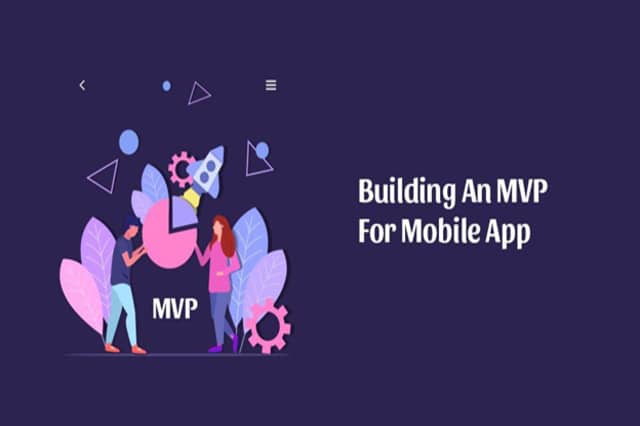10 Reasons Why You Should Build MVP for Your Mobile App
App development has become a common trend and perhaps a necessary obligation for businesses and startups to bring their services before the public these days.
For it is convenient and favorable to the business as well as the customer to engage in business comfortably without having to travel physically or make a phone call either.
The process of App development however isn’t as straightforward as it sounds to be. And the business owners, although pretty sure of the features they would like to have on their apps, might get disappointed to find out that the consumer wants to have it another way.
So, that brings up this question as – what method should be implemented to develop an app?
Advice comes up all the time regarding the need to be methodically organized and particular about the requirements one has for their product. And the startups do it accordingly.
They develop abstract ideas regarding the apps they need, find a decent development team, figure out a lot of features that their app is going to offer, pay the quoted price, and get the app delivered. This is the traditional app development process.
A majority of startups however run into problems after spending the cost required for the app. Maybe the results aren’t up to the expectations.
Perhaps the features sought after weren’t needed or the customers had different expectations and the product didn’t meet those expectations.
There can be more radical reasons for disappointments such as failure of the revenue generation model, for instance.
This brings us to another method that successful startups have been widely adopting in order to create their app-based product mainly in order to reduce the costs and avert some risks related to app failures and reduce the development time to speed up implementation.
This method is called the Minimum Viable Product method or MVP method. In mobile app development, an MVP is a development method in which the basic model of the mobile app that is being envisioned is made which would fulfill the primary objective of the app.
Hence, only the core functionalities are developed which would solve the problems and provide services to the early customers.

There are several reasons among those discussed above why a startup opting for app development to serve their customers should go for the MVP method. Some of these include;
-
Cost efficient
Efficient money allocation is essential for a business especially a startup to survive the initial phase where the foundation is still fragile.
The business can’t afford to bear losses, especially those arising due to failure of the main revenue generation link. This happens when a company decides to get their app traditionally, and it doesn’t work.
A full-fledged app would cost about 100,000 dollars, which is a lot of money to risk, whereas an MVP would cost around tens of thousands of dollars.
This would give a sufficient kick to start the business, would be less risky, and would save a lot of money. Moreover, the indirect savings due to low maintenance, and fewer resources needed to run a basic MVP would further save money.
-
Plan UX without re-development
User experience is without a doubt an essential factor that decides the success or failure of any program with which the end user is supposed to interact with. Consider the failure of Windows Vista, and Windows 8 for instance.
People need convenient and interactive features in the app that they utilize and in this competitive market, they won’t wait to dump you if they find a better alternative.
This is the reason why businesses hire teams that would focus exclusively on the UI and UX of applications, yet the success of their product isn’t guaranteed.
The cost to run such teams is huge, and startups without a lot of initial capital at hand are unable to afford them. An MVP is of tremendous help to such startups with which they can utilize constructive feedback to upgrade the UX with time.
-
Testing Demand
A lot of startups while planning a business don’t conduct a market survey on a big scale. The reason is obvious. It requires money and extensive market research for demand requires a considerable investment.
Thus they tend to go for it based on their past experiences, research based on a narrow customer segment, or even their gut feeling.
This is where a lot of businesses fail because they start their operations anticipating public demands that actually aren’t present.
Because MVPs are meant for testing and later implementing, the loss involved in such misinterpretation is controlled and the data and feedback collected thereby can be considered to provide the customers with the services they actually demand.
-
Testing and improving Business strategies
A major advantage an MVP provides to a new business is the opportunity to test the strategies that the businesses have implemented to run their business. They target demographics, the way they are marketing their product and so on.
An MVP can be used to verify if their strategies are working well. If there are any shortcomings, they can improve their apps accordingly to serve the target groups in a proper way that would be functional.
Changes can be implemented seamlessly when an app is in its basic testing stage. While for a fully developed app it becomes cost-sensitive and hard to implement.
-
Investment acquisition
Startups need capital to build their foundations, begin their operations, and keep their enterprise running. Unless it is started by an already well-to-do company/organization, it needs someone to invest their money with them.
Investors, in turn, look and analyze the startups and on the basis of their evaluation, they fund the businesses.
In order to gain investor trust, an MVP can be very helpful as it would demonstrate the working business model and not a fictional idea thereby validating the vision that is being pitched.
Investors want to invest in businesses that would ensure them future returns and a working product has a high success chance if guided properly.
-
Testing Monetization strategy
An app is developed to generate revenue, and a business can implement one of the many monetization strategies that they may find fit.
Some may go for revenue generation using in-app advertisement, in-app purchases of virtual goods, sponsorships, or membership fees based revenue generation.
MVPs can be utilized to test the willingness of the public to pay for the premium plans, or upgrading, or the revenue model involving advertisements are feasible or to test if any other strategy that they have planned for is working.
If the model isn’t working, necessary changes can be made and new strategies can be implemented.
-
Growth in Increments
When young people dream of starting a business, often they dream of their business becoming an overnight success, their ideas working perfectly right away and the money will keep flowing in.
However, such dreams rarely come true, and the wise always know that the ‘slow and the steady’ are the ones who win.
As mentioned already in the points above, impulsively going all the way to develop a fully stacked and finalized app can lead to disaster if there have been errors in doing analysis.
MVPs in this case ensure a risk-averted growth where improvements can be done in increments and a steady growth can be realized.
-
Developing early customer relations
Businesses stand on the relations they build with the customers, and an early engagement with the customers is always beneficial.
This ensures that the business keeps running and revenue generation doesn’t stop. Data keeps coming in and improvements are being carried out in other areas of business.
MVPs ensure that even if the final app development has been planned, or is being worked upon, the business keeps running and customers are being entertained and the word of mouth is being spread.
-
Allows faster recovery
An MVP consists of core features that the app is supposed to offer. And at this testing stage, when the app may or may not serve its purpose, failures are anticipated unlike in cases when an app is finally rolled out and proves to be a failure.
At this stage, startups can recover fast and losses can be afforded.
-
Lays out a directed path towards success
An MVP method of app development cuts off the guesswork substantially which a lot of startups rely upon.
When an app is founded on actual data, and real experience accumulation, the failure rate drops drastically.
Thus MVPs lay firm foundation based on actual data and thus are reliable products that can direct a business towards success. There are many MVP Development companies available in the market where you hire a team of mvp developers as per your requirements.
The Final Wrap
We all have used apps ever since we laid our hands on smartphones. During those times, certain apps were newly rolled out.
Consider- Facebook, Instagram, Uber, Snapchat, Spotify; all these apps started out as MVPs, and slowly upgraded according to the demands of the users.
This made them highly successful. Hence, this is the clear evidence that starting off with a complete app does pay off.




